Up Skilling
EKAM foundation is a not-for-profit (NGO) organization that works towards providing quality healthcare to needy children and mothers in India. The foundation was started on the basic premise that no child should be denied the right to healthcare.
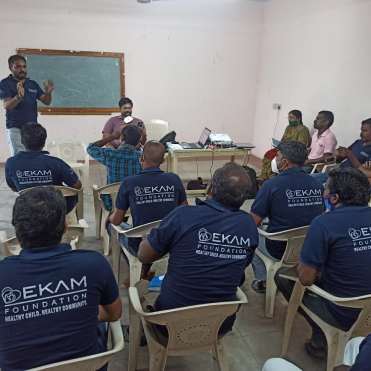
District Coordinator Training
Read More
sustainable societies. Each DCO is in charge of the activities in one district. Training of DCOs is necessary in order to increase their knowledge about the KFAs and empower them in all aspects that addresses the requirement of the community. According to the broad objective of Ekam, after gaining adequate comprehension and experience, the DCOs will become mentors and take up the role of guiding volunteers chosen from each community through knowledge transfer.
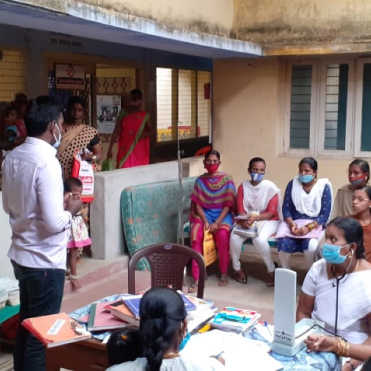
Adolescent Training
Read More
The Rashtriya Kishor Swasthya Karyakram (RKSK) is a government programme launched by the Ministry of Health & Family Welfare in 2014. The beneficiaries are adolescents from the age group 10-19 years. The programme aims to tap the full potential of adolescents by empowering them to make informed and responsible decisions related to their health and well-being, by using the support services provided by the government. Inorder to guide a successful transition to adulthood, the programme tries to understand the multiple concerns of adolescent health and wellbeing.
Ekam foundation aims to help the government in increasing the coverage of the programme by conducting RKSK programmes in the community.
Aim
The aim is to improve awareness of adolescents on overall health and wellbeing
Primary objectives
Secondary objectives
To build decision making capacity in adolescents and impart social responsibility to bring about active participation in the betterment of their community.
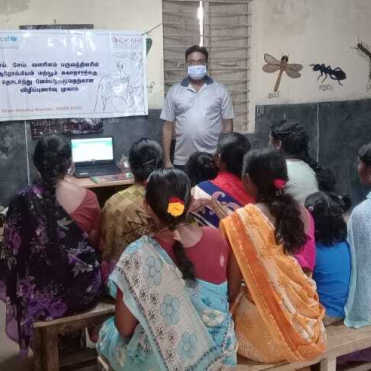
Training of Volunteers
Read More
to reduce the risk of disasters or to combat social exclusion and violent conflict. In all of these fields, volunteerism makes a specific contribution by generating well-being for people and their communities. A society which supports and encourages different forms of volunteering is likely to be a society which also promotes the well-being of its citizens. Therefore, Ekam is involved in identification and training of committed volunteers and engages them in the SWBI activities on a continuous basis. In the process, the volunteers are also empowered on SDG goals to be able to contribute to the society.
Aim
The aim of the program is to identify and train the volunteers.
Primary objectives
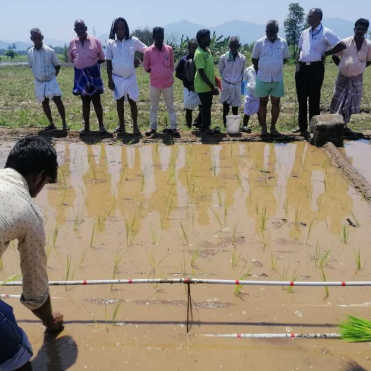
Farmer Training
Read More
Dependence on expensive inputs purchased from outside leads to financial distress of farmers.
Close and continuous contact with agricultural poisons makes farmers more susceptible to cancer, respiratory problems, and other major diseases. India‟s farmers are exposed to numerous pesticides that are banned in developed countries. Many farmers turn to organic methods after experiencing the ill-effects of pesticides. Studies have shown some of the pesticides induce suicidal tendencies. Traditional seeds developed by Indian farmers are naturally pest-resistant, nutritious and suited to local conditions. Chemical farming promotes the use of Hybrid non-native seeds. Organic standards do not allow any genetically modified seeds and inputs. Ensuring natural farming promotes biodiversity. Natural farms will have a buzz of animal, bird and insect activity. Native plants and birds return usually after the first season of organic practices.
Project cost includes -activities of training & coordination cost for staff for facilitating the project.
Aim
The aim of the program is to train the farmers in natural farming, effects of pesticides and chemical fertilizer, conservation of water, etc.
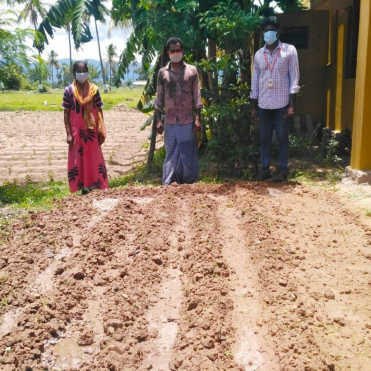
Training on Kitchen Garden & Herbal Garden
Read More
The practice of gardens is a useful activity where people grow vegetables individually or on household basis in spaces within their possession rather in a collective effort on allotted space.
Hence, encouraging or enhancing kitchen and herbal vegetable gardening at home can play a significant role in improving food security to resource poor rural and urban households in providing additional sources of fresh and nutritionally rich food products. But people are unaware of how to set up a kitchen garden.
Aim
The aim of the program is to train the students and community people on kitchen garden and herbal gardens.
Primary objectives
To train students and community people on kitchen garden and herbal garden
Secondary objectives
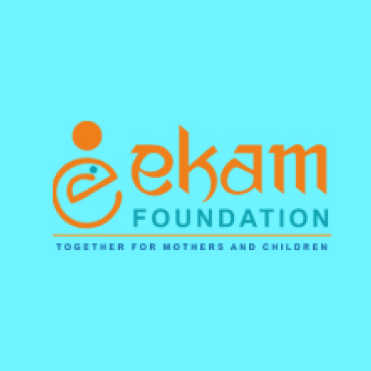
Surveillance, Monitoring and Evaluation activities
Read More
The huge data obtained from the studies have been recorded systematically which over time will help in bringing effective changes in the policies. Each project is assessed at the micro-level using process indicators which are translated into community effort assessed by the outcome indicators and the practice-oriented change in the community assessed by the impact indicator.
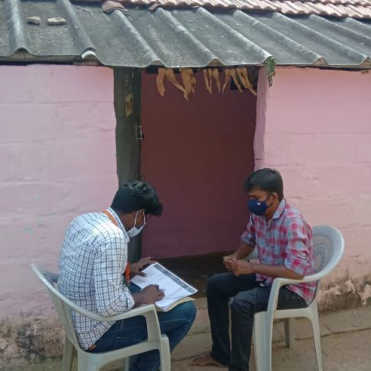
Village health survey
Read More
participation and ownership for decentralized health planning. Baseline surveys help in understanding the specific needs of the community and the programmes which need to be emphasized. Such surveys help in identifying the gaps and describing the current scenario in the community for which counter-actions could be taken to ensure the enhancement of particular areas of development.
Aim
To assess the implementation status of VHSNCs and analyze the issues regarding their implementation in the villages of Tamil Nadu.
Primary Objectives
Subscribe to our Newsletter
Subscribe to our newsletter to stay updated on Ekam’s activities and achievements.
